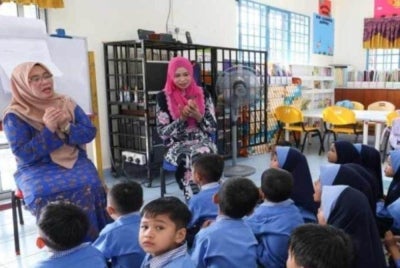Meritocracy spurs people to do their best, says Singapore's minister Maliki Osman
NUR FAKHIRA JAAFAR
SHAH ALAM - Singapore as a small country considers the people as its greatest resource and education plays a critical role in developing the right talent and workforce to help the country thrive and remain a city of opportunities.
Singapore's Foreign Affairs Minister Dr Maliki Osman said a system based on meritocracy spurs people to excel and do their best.
He said every child, regardless of background need to have a good start and opportunities to display their potential.
As the society matures and it needs to evolve, Singapore also need to adapt and evolve their model of meritocracy to avoid stratification.
"Much work is being put into enhancing the diversity and porosity of the education pathways, to support different learning needs and prepare Singaporean for an uncertain and more complex future," he told Sinar.
The Ministry is focusing on developing the right competencies and skills which includes a growth mindset, critical thinking, problem solving, global awareness and cross-cultural skills.
Maliki explained that the polytechnics and Institutes of Technical Education (ITE) formed a key part of Singapore higher education landscape, catering to seven in ten of each primary cohort.
He said admission to enter polytechnics and ITE were expanded based on the young people's growing diverse interests and aspiration outside of academic performance.
He said the ministry is currently brainstorming ideas to further enhance education in polytechnics and ITE.
Some of the new measures included broaden industry exposure for students, strengthening students’ soft skills and enhancing post-graduate career guidance.
Other than that, UPLIFT (Uplifting Pupils in Life and Inspiring Families Taskforce) was an inter-agency team established to strengthen the partnership between schools and community partners to enhance support for disadvantaged students.
It was established in 2018 with aims to tackle long-term absenteeism which was identified as a key barrier that prevents students from reaching their full potential.
Schools were provided with additional manpower through UPLIFT and the number of schools receiving the support had doubled from 23 schools in 2019 to 47 schools in 2022.
In 2020, the Ministry had also piloted the UPLIFT Community Network in collaboration with Singapore’s Ministry of Social and Family Development to create a support ecosystem for students from disadvantaged families.
It was expected that around 1,300 students and their families will be supported through this initiative this year.
Furthermore, Maliki stressed that bilingualism is a cornerstone of Singapore’s education policy. Thus, the Malay Language Learning and Promotion Committee (MLLPC) was established in 2006 to promote Malay language.
He said by learning the mother tongue, students are inclined to their cultural roots, strengthens their Singaporean identity, and allows students to better understand and relate to native-speaking communities in the region and around the world.
MLLPC consisted of community leaders, tertiary education institutions’ representatives, Malay community organisations, media and other professional bodies.
The committee worked together with partners group to organise activities that promote Malay language and culture, such as game shows, TikTok videos and Ted Talk-style presentations.
Download Sinar Daily application.Click Here!














